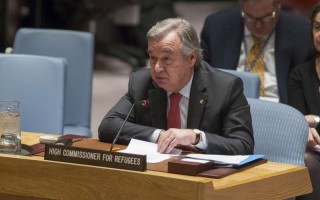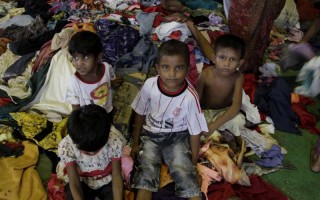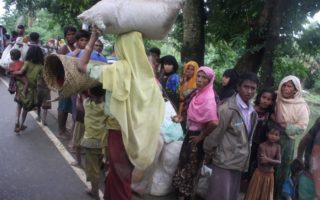“Have we become unable to broker peace?” Grandi asks Security Council during key address on record levels of displacement.
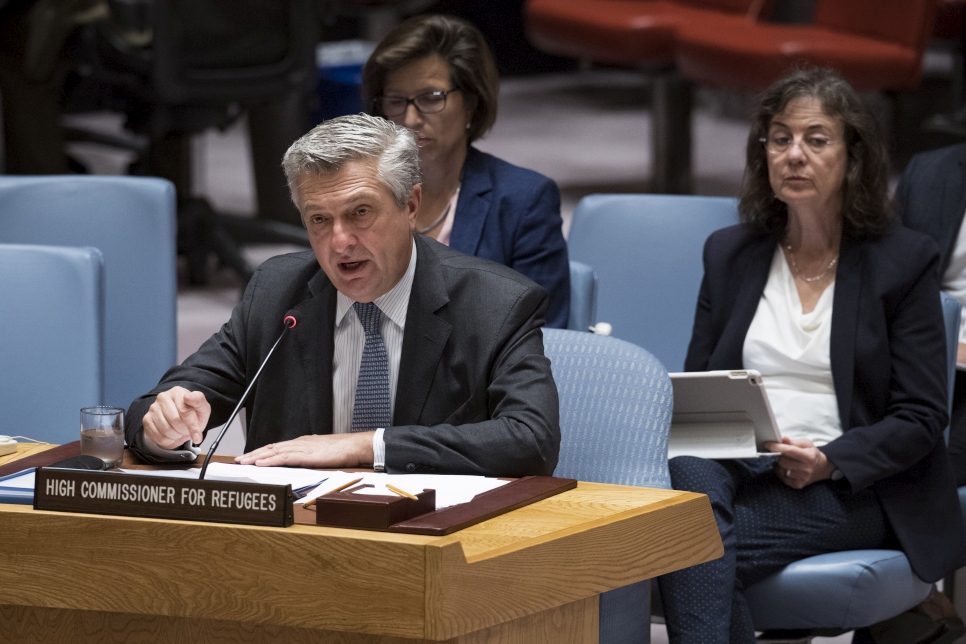
Filippo Grandi, United Nations High Commissioner for Refugees, briefs the Security Council. © UN Photo/Manuel Elias
NEW YORK – Filippo Grandi, the United Nations High Commissioner for Refugees, has urged international leaders to find political solutions to the world’s conflicts if the swelling numbers of forcibly displaced people are ever to return home.
Speaking to the UN Security Council in New York, Grandi said that a succession of major new crises had caused massive displacement across virtually all regions of the globe.
“The number of people forcibly displaced worldwide is now approaching 66 million, up from 42 million in 2009,” he said. “This includes 17.2 million refugees under UNHCR’s responsibility, a 70 per cent increase since then.”
The UNHCR chief added: “Securing solutions for the millions of people uprooted around the world, and avoiding a repeat of the massive outflows that have taken place over recent years, ultimately rests on political solutions.”
Grandi pinpoints need to end “cataclysmic conflict” in Syria.
Grandi cited several ongoing crises, including the “cataclysmic conflict” in Syria and the violence in Iraq, which together accounted for a quarter of all those forcibly displaced. But new crises had developed, he said, with many unfolding “in ungoverned spaces, driven by varying combinations of poverty and underdevelopment, environmental degradation, inequality and persecution.”
At the same time, situations that appeared to have stabilized, such as those in Burundi, South Sudan and the Central African Republic, had been affected by new crises triggering new refugee outflows; while protracted situations – as in Afghanistan and Somalia – remained entrenched.
Grandi outlined several action points for members of the Security Council. First, they needed to support preventative measures “to address the causes of conflict and avoid deepening displacement crises”.
He also praised the vital work of UN peacekeepers in enabling humanitarian work, saying that humanitarian actors and peacekeepers should draw on their diverse strengths to help protect civilians affected by conflicts, while at the same time preserving the neutral, impartial character of humanitarian action.
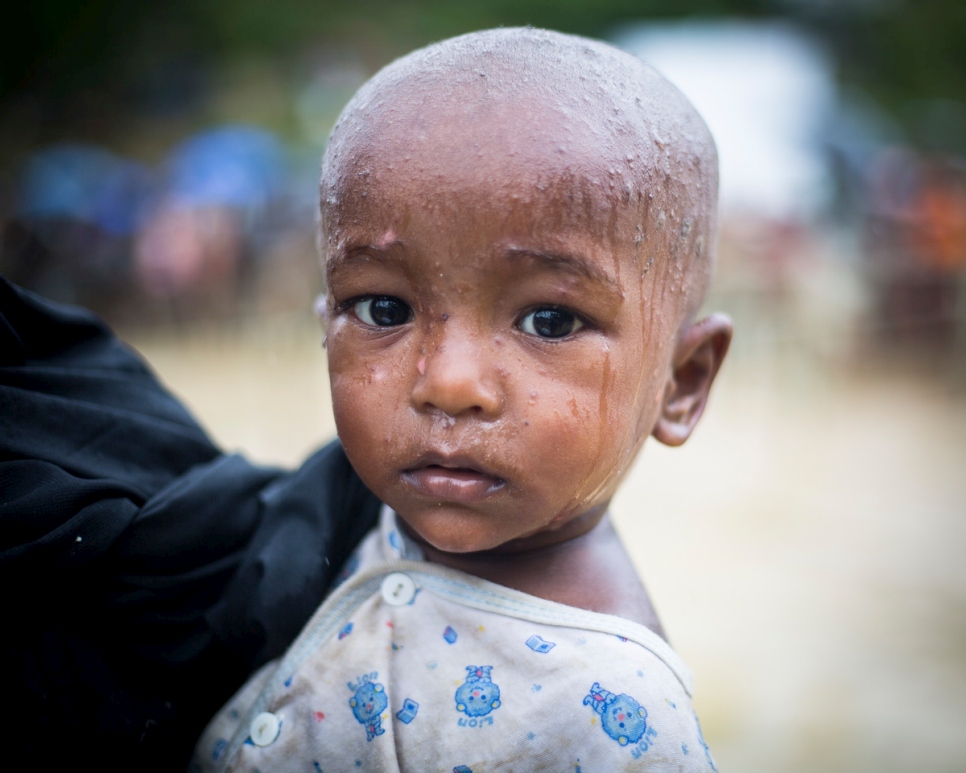
A Rohingya baby and his mother queue for an aid distribution in rainy Kutupalong refugee camp, near Cox’s Bazar, Bangladesh. © UNHCR/Roger Arnold
Thirdly, the international community needed to build on its work fighting people trafficking and the “horrific abuses perpetrated by traffickers”, the UNHCR head declared. Although the Refugee Agency was working on the ground to assist the victims of people trafficking and support those in need of international protection, Grandi said resolute action was required, “to tackle the horrific abuses perpetrated by traffickers and identify and prosecute them.”
Without the restoration of peace and security, however, Grandi said it would be impossible for refugees and other displaced persons to return home. “Only 500,000 refugees worldwide returned home last year. And very few displacement situations in the last decade have been brought to a definitive conclusion,” he said.
In particular, security and the establishment of human rights and the rule of law will be essential to the return of Rohingya refugees to Rakhine State in Myanmar. “Progress on citizenship for the stateless Rohingya is absolutely crucial, as will be community reconciliation, and investment in inclusive development benefiting all communities”, added Grandi.
Lastly, Grandi said it was vital to sustain the protection of displaced people while solutions to conflict were pursued, both within affected countries as they work towards greater stability, and in host communities trying to support large numbers of refugees.
“Have we become unable to broker peace?” Grandi asks Security Council.
Ultimately, however, the answer to halting and then reversing the flow of refugees and other displaced people would come from political solutions, Grandi stated – and in this respect the international community was failing.
“Have we become unable to broker peace?” he asked. “I ask this question here, in the Security Council, whose raisons d’être are conflict resolution and sustaining peace – because I see the direct impact of these failures, every day, on the lives of tens of millions of people, uprooted and forced to abandon their homes.”
Weaknesses in international solidarity were also eroding refugee protection, he added. “Many refugee-hosting states, particularly those neighbouring conflict zones, keep their borders open and generously host thousands – sometimes millions – of refugees.
“But certain states – often those least impacted by refugee flows, and often wealthy ones – have reacted by closing borders, restricting access to asylum and deterring entry.”
Referring to last year’s UN Summit for Refugees and Migrants, which gave rise to the New York Declaration calling for a comprehensive response to the international refugee crisis, the UNHCR chief praised what he said were “important steps” taken by member states, development institutions such as the World Bank, civil society and the private sector.
“But a full response to today’s massive displacement flows can only be achieved through action to restore security, resolve conflict and build peace,” Grandi declared.
The world’s rapidly growing population of displaced people were “counting on your leadership to help deliver those solutions”, he told the Security Council.



